Open Access agreements with smaller publishers require active cross-stakeholder alignment, report says
09/06/2021
Open Access agreements between consortia/libraries and smaller independent publishers are used worldwide increasingly since 2020, signalling a potential for further growth, highlights an independent report released today (June 9, 2021) by Information Power. The report was commissioned by cOAlition S and the Association of Learned & Professional Society Publishers (ALPSP) as a follow up on the outcomes of the Society Publishers Accelerating Open access and Plan S (SPA-OPS) project, published in autumn 2019.
The report indicates that during 2020 there was a clear increase in the number of open access (OA) articles published in hybrid journals, which reverses the downward trend between 2016 – 2019, and deems likely a further increase over the next few years, partly driven by new OA agreements.
Smaller independent publishers – for example, society publishers without a larger publishing partner, university presses, library presses, and small independent commercial presses – support open science, and they would like the journal articles that they publish to be open to people all over the world. However, due to their scale, a full transition to OA is a serious challenge. A single OA agreement with an institution is much easier for a smaller independent publisher to administer than many article transactions, unless of course each library or consortium wants a different sort of agreement. Libraries and consortia invest hugely in making agreements with publishers happen; however, there can be far less awareness within these organizations of how challenging the agreements are to implement highlights the report.
Practical collaboration in a number of targeted areas is needed to align on shared principles, license language, data exchange, and workflows, followed by engagement with standards bodies, intermediaries, and platform providers to ensure these can become embedded in practice.
The transition to OA requires change on the part of all stakeholders. The report argues it is particularly crucial that active cross-stakeholder alignment focuses on enabling smaller independent publishers to transition successfully. Among other things, the authors strongly recommend funders take steps to enable universities to aggregate all their expenditure with publishers via the library. They also encourage publishers who closely link the price of OA agreements to article volume to think carefully about more equitable models.
“OA agreements do appear to be here to stay, but various practical challenges slow their growth; more needs to be done by cross-stakeholder groups to simplify and standardize if they are to continue to accelerate the transition to OA.”, remarked Alicia Wise, Director of Information Power.
Upon publication of the report’s findings and recommendations, Robert Kiley, Head of Strategy, cOAlition S, commented: “cOAlition S funders have always encouraged smaller publishers to embrace OA and align with Plan S principles. We will attentively examine the recommendations of this independent report and will work with stakeholders to facilitate the transition”.
Wayne Sime, Chief Executive, ALPSP, noted: “ALPSP fully endorses the recommendations within the report. It is welcome that smaller independent publishers are highly valued for their activities in promoting excellence in research, for the scholarly communication services they provide, and for the key role they play in ensuring a diverse, open scholarly publishing landscape.”
Notes to Editors
- cOAlition S is an international consortium of research funding and performing organisations supporting Plan S, an initiative for Open Access publishing that was launched in September 2018. Plan S requires that, with effect from 2021, all scholarly publications on the results from research funded by public or private grants provided by national, regional, and international research councils and funding bodies, must be published in Open Access Journals, on Open Access Platforms, or made immediately available through Open Access Repositories without embargo.
- The Association of Learned and Professional Society Publishers (ALPSP) is an international membership trade body that supports and represents not-for-profit organizations and institutions that publish scholarly and professional content. With over 300 members in 30 countries, membership also includes those that work with these publishers.
- Information Power Ltd is a consultancy service specializing in Open Access and research information. Its principals, Dr Alicia Wise and Lorraine Estelle, have been at the forefront of innovations in scholarly publishing for over 25 years. The team works with funders, libraries, consortia, publishers, agents, vendors, and universities around the world.

